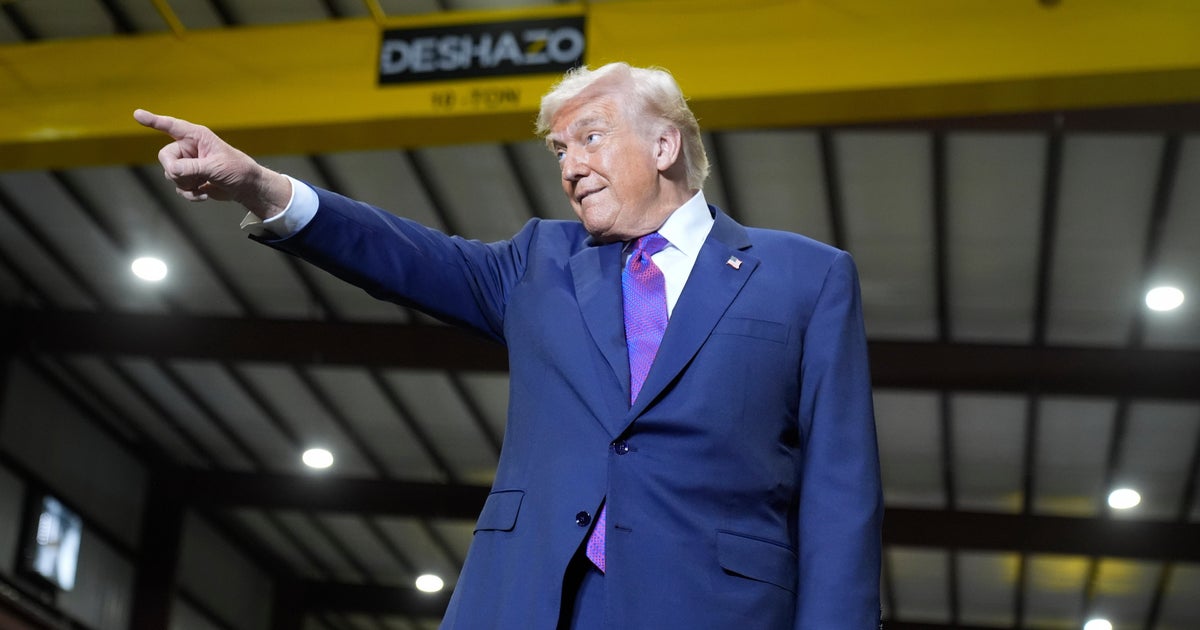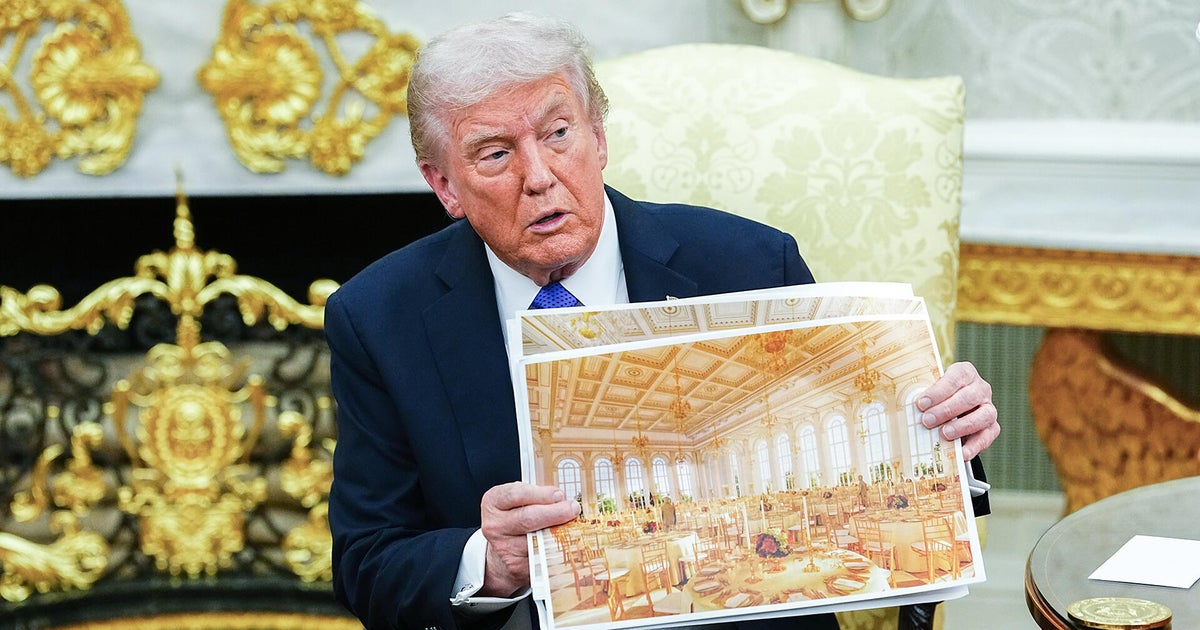Trump won't testify at impeachment trial, rejecting calls from Democrats
Washington — The attorneys representing President Donald Trump in his Senate impeachment trial said Thursday he will not testify at the proceedings next week, dismissing demands by House Democrats for his testimony as a "public relations stunt."
Congressman Jamie Raskin, a Democrat from Maryland and the lead House impeachment manager, sent a letter to Mr. Trump and his lawyers Thursday asking him to answer questions under oath about his conduct on January 6, when a mob of his supporters stormed the U.S. Capitol building.
Raskin suggested Mr. Trump could provide his testimony, which would include cross-examination, as early as Monday, February 8, and no later than Thursday, February 11.
"Presidents Gerald Ford and Bill Clinton both provided testimony while in office — and the Supreme Court held just last year that you were not immune from legal process while serving as president — so there is no doubt that you can testify in these proceedings," Raskin wrote. "Indeed, whereas a sitting president might raise concerns about distraction from their official duties, that concern is obviously inapplicable here. We therefore anticipate your availability to testify."
Raskin said that if Mr. Trump declines to testify, the House impeachment managers "reserve any and all rights, including the right to establish at trial that your refusal to testify supports a strong adverse inference regarding your actions (and your inaction) on January 6, 2021."
Mr. Trump's lawyers, Bruce Castor and David Schoen, called Raskin's request a "public relations stunt" in a response later in the day.
"As you certainly know, there is no such thing as a negative inference in this unconstitutional proceeding," they wrote in response to Raskin. "Your letter only confirms what is known to everyone: you cannot prove your allegations against the 45th president of the United States, who is now a private citizen. The use of our Constitution to bring a purported impeachment proceeding is much too serious to try to play these games."
The Senate is set to convene as a court of impeachment February 9 to hear the case against Mr. Trump. The House approved a single of article of impeachment charging him with incitement of insurrection last month.
In a response to the article filed this week, Mr. Trump's lawyers argued the president was exercising his First Amendment rights when he made unfounded claims about voter fraud in the election and was not inciting violence when he urged his supporters to "fight like hell" during a rally before the assault on the Capitol. They also argue the impeachment trial is unconstitutional, as the Senate cannot try a president who is no longer in office.
Raskin said the president's answer to the article "denied many factual allegations set forth in the article of impeachment. You have thus attempted to put critical facts at issue notwithstanding the clear and overwhelming evidence of your constitutional offense."
A senior aide on the Democrats' impeachment team said the managers sought to ask Mr. Trump about several of the claims in his pre-trial filing, including that his warning "if you don't fight like hell, you're not going to have a country anymore," was about fighting for election security generally, and that he never intended to interfere with the counting of electoral votes. They also wanted Mr. Trump to address his claim that he "performed admirably in his role as president, at all times doing what he thought was in the best interests of the people."
While the rioters broke into the Capitol building, ultimately gaining access to the Senate floor shortly after members were evacuated, Mr. Trump was largely silent, despite calls for him to demand an end to the violence. He later released a video on Twitter calling for the mob to "go home," but said "we love you, you're very special." It wasn't until more than 24 hours after the attack that he condemned the violence.
In their own pre-trial filing, the nine House impeachment managers said Mr. Trump was "singularly responsible" for the January 6 assault and batted down claims from Republicans that the Senate does not have the authority to hold a trial against a former president.
"President Trump's effort to extend his grip on power by fomenting violence against Congress was a profound violation of the oath he swore," they wrote. "If provoking an insurrectionary riot against a Joint Session of Congress after losing an election is not an impeachable offense, it is hard to imagine what would be. The Framers themselves would not have hesitated to convict on these facts."
Following the January 6 attack, during which the pro-Trump mob attempted to stop Congress from counting states' electoral votes and reaffirming President Joe Biden as the winner of the presidential election, the House moved swiftly to punish Mr. Trump for his role.
Democrats argue the president incited the violence at the Capitol with his fiery rhetoric in the weeks after the November 3 election and on the day of the riots. Ten Republicans joined House Democrats in it historic vote to impeach Mr. Trump, which made him the first president to be impeached twice.
Rebecca Kaplan contributed to this report.



